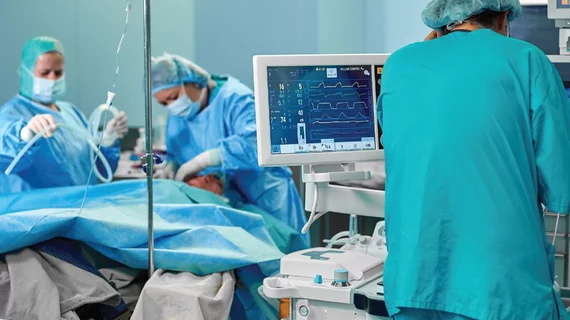A first in cardiac surgery: HIV-positive patient receives heart transplant from HIV-positive donor
In a worldwide first, surgeons at Montefiore Health Center successfully performed both a heart transplant and a simultaneous kidney transplant on an HIV-positive patient using organs from an HIV-positive donor.
The groundbreaking surgery marks an important milestone after the passage of the HIV Organ Policy Equity Act in 2013. While the legislative act made it possible for people living with HIV to donate their organs to HIV-positive recipients, it wasn’t until now that the possibility became a reality, noted a statement about the surgery.
“This was a complicated case and a true multidisciplinary effort by cardiology, surgery, nephrology, infectious disease, critical care, and immunology,” Omar Saeed, MD, the patient's cardiologist and an assistant professor of medicine with the Albert Einstein College of Medicine, in the statement. “Making this option available to people living with HIV expands the pool of donors and means more people, with or without HIV, will have quicker access to a lifesaving organ. To say we are proud of what this means for our patients and the medical community at large, is an understatement.”
The patient, in her sixties, was suffering from heart failure before receiving the transplants. After a four-hour surgery and a five-week recovery in the hospital, she’s now seeing her transplant physicians for monitoring, according to the statement.
Her experience highlights the importance of creating innovative solutions to close the gap between the number of people seeking heart and other organ transplants and the number of transplants actually performed. In the United States, the statement notes, there were only around 3,800 heart transplants performed in 2021—compared with an estimated 60,000 to 100,000 people who could benefit from a new heart.
